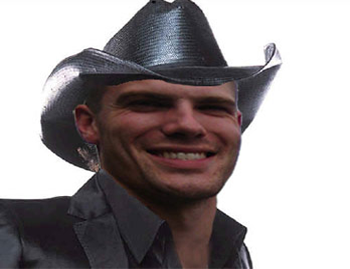|
Bertness Lab |  |
| Coastal Ecology and Conservation at Brown University |
| Overview |
| Consumer control |
| Human impacts |
| Foundation species |
| Climate change impacts |
| Historical ecology |
| Mark Bertness |
| Caitlin Brisson |
| Elena Suglia |
| Sinéad Crotty |
| Matt Bevil |
| Lab Alumni |
Brown University (2010); Sc. B. Biology Brown email address: Tyler_Coverdale@Brown.edu TWITTER: @tylerccoverdale |
 |
I am generally interested in the biotic interactions and abiotic conditions that determine community structure and function. My research in the Bertness Lab focused on the role of historical and contemporary human impacts in altering trophic interactions and the effects of that trophic dysfunction on community structure. I am interested in understanding how novel trophic interactions, triggered by historical and current human impacts, effect biotic and abiotic feedbacks. My work on Cape Cod, MA focused on how the interaction between historical mosquito ditching and contemporary overfishing by recreational anglers triggered widespread salt marsh die-off over the last three decades. Using historical aerial photographs and a variety of manipulative field experiments I reconstructed a 70 year history of salt marsh change on Cape Cod. This research elucidated the role of impact debts, dormant human impacts that accumulate unrealized before triggering community-wide shifts, in driving patterns of coastal habitat loss. I went on to demonstrate the generality of these hypotheses as crab-driven salt marsh die-off spread into Long Island Sound. My research also focused on the role of belowground herbivory in driving patterns of salt marsh die-off on Cape Cod. Shifts in the trophic structure of New England’s salt marshes led to novel feeding behaviors, including an apparent increase in the role of belowground grazing by herbivorous crabs. In 2011, I performed a series of manipulative field experiments to determine the impact and prevalence of belowground grazing on die-off intensity throughout Cape Cod. My most recent work on Cape Cod was aimed at elucidating the role of the invasive green crab, Carcinus maenas, in driving patterns of recovery from salt marsh die-off.This project involved investigating the biotic and abiotic conditions that allow green crabs to invade and persist in salt marshes experiencing die-off, as well as the direct and indirect interactions between Sesarma reticulatum and Carcinus maenas. In the absence of natural predators, green crabs play a compensatory role, both through predation and a powerful fear of being eaten response, that can dramatically reduce Sesarma herbivory rates. The results of this work have implications for the management of New England’s heavily impacted salt marsh ecosystems, many of which are currently experiencing widespread salt marsh die-off. In addition to working in New England salt marshes, I was fortunate to begin a long-term project in the Badesi Dunes, Sardinia, Italy in collaboration with other members of the Bertness Lab and Sardinian colleagues from the University of Sassari and the University of Pisa. We hope to elucidate the biotic interactions and abiotic gradients that drive striking zonation in sand dune plant communities through large-scale manipulations of abiotic stressors including water and nutrient scarcity and sediment instability. After leaving the Bertness Lab I plan to pursue my PhD at Princeton University with Rob Pringle. My work with Rob will likely focus on plant-herbivore interactions and human impacts in African grasslands. I plan to begin field work in Kenya (Mpala Research Centre) and Mozambique (Gorongosa National Park) in June 2013.
|
|